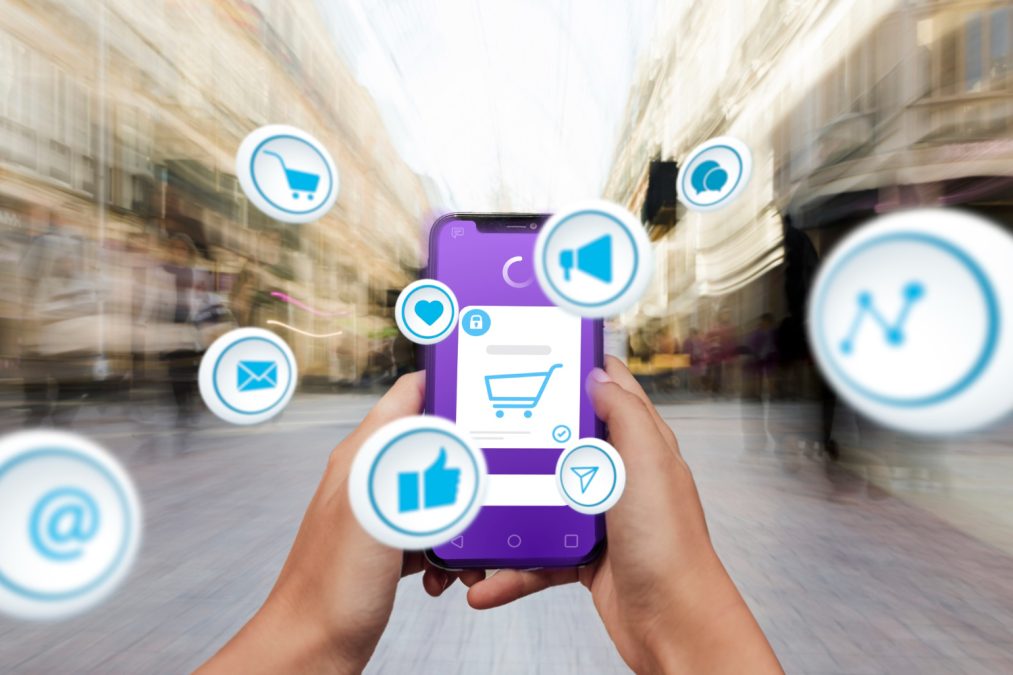Social commerce is no longer just a buzzword—it’s the future of online shopping. With over 4.9 billion social media users worldwide (as of 2023), platforms like Instagram, Facebook, TikTok, and Pinterest have transformed into more than just networking sites. They’re now full-fledged marketplaces where users can discover, browse, and buy products without ever leaving the app.
According to Statista, the global social commerce market is expected to reach $1.2 trillion by 2025. And brands that embrace social selling see significantly higher engagement rates, lower cart abandonment, and stronger customer loyalty. But which platforms are leading the charge? Let’s dive into 15 social commerce platforms that prove just how crucial social selling has become.
Page Contents
1. Instagram Shopping
Instagram is a powerhouse for social commerce, with over 1 billion monthly active users and a seamless shopping experience. Businesses can tag products in posts, launch shoppable Stories, and even run live shopping events. The in-app checkout feature makes it easy for users to purchase without leaving the platform.
2. Facebook Shops
Facebook Shops lets businesses set up customizable storefronts directly on their Facebook pages. Customers can browse products, chat with sellers via Messenger or WhatsApp, and purchase without redirection. Facebook’s AI-driven personalization makes product recommendations even more relevant.
3. TikTok Shop
With TikTok’s explosive growth (over 1.5 billion users), brands are capitalizing on its built-in shopping features. Users can buy products directly from TikTok videos, Lives, and creator collaborations. The algorithm-driven content ensures maximum exposure for trending products.
4. Pinterest Shopping
Pinterest is a visual discovery engine, making it a perfect match for social commerce. With features like Product Pins and Pinterest Lens, users can find and buy products seamlessly. Over 85% of Pinners use the platform when planning purchases.
5. Snapchat Spotlight & AR Shopping
Snapchat is pushing social commerce with augmented reality (AR) shopping lenses. Brands can create immersive experiences, letting users try on products virtually before making a purchase. The ‘Spotlight’ feature helps products go viral organically.
6. YouTube Shopping
YouTube’s integration with Google Shopping allows content creators to tag products in videos, making them shoppable. Live shopping events also drive real-time sales, leveraging influencer marketing.
7. WhatsApp Business
WhatsApp isn’t just for messaging anymore—it’s also a powerful social commerce tool. Businesses can create catalogs, send automated order updates, and accept payments via WhatsApp Pay in select regions.
8. Twitter Shopping
Twitter’s recent push into eCommerce includes features like Twitter Shops and Buy Now buttons, allowing brands to sell directly through tweets. Given Twitter’s real-time nature, it’s great for launching limited-time deals and viral campaigns.
9. LinkedIn Marketplace
B2B brands are leveraging LinkedIn’s new marketplace to sell services and digital products. Professionals can discover and purchase industry-related tools directly from company pages.
10. WeChat Mini Programs
WeChat is China’s all-in-one super app, with over 1.3 billion monthly active users. Its Mini Programs allow brands to create embedded eCommerce stores with seamless checkout experiences.
11. Reddit Community Commerce
Reddit’s tight-knit communities (subreddits) make it a powerful niche commerce platform. Brands use Reddit Ads and AMAs (Ask Me Anything) to drive product sales through organic discussions.
12. Twitch Commerce
Live-streaming platform Twitch integrates commerce through Merch Shelves and in-stream shopping. Gamers and creators can sell branded products directly to their audiences in real-time.
13. Viber Chat Commerce
Viber is another messaging app stepping into eCommerce. Brands can sell directly through chatbots and in-app product catalogs, making it easy for users to shop while chatting.
14. Discord’s Server Commerce
Discord is not just for gaming anymore—it now allows brands to monetize their communities. Businesses can sell digital goods, memberships, and merchandise directly within their servers.
15. Telegram Shopping Bots
Telegram’s API lets businesses create custom shopping bots, making it easier for users to browse and buy products within chat groups. Digital product sellers especially benefit from this feature.
The Future of Social Commerce
Social commerce isn’t slowing down—it’s evolving. As AI and AR-powered shopping experiences become more advanced, platforms will continue to blend content and commerce seamlessly. Brands that tap into these platforms early can build stronger customer relationships, increase sales, and future-proof their business in an increasingly social-first world.
Whether you’re a small business or an established brand, the key takeaway is clear: social selling isn’t optional—it’s essential.
Which platform are you most excited about using for social commerce? Let us know in the comments!





